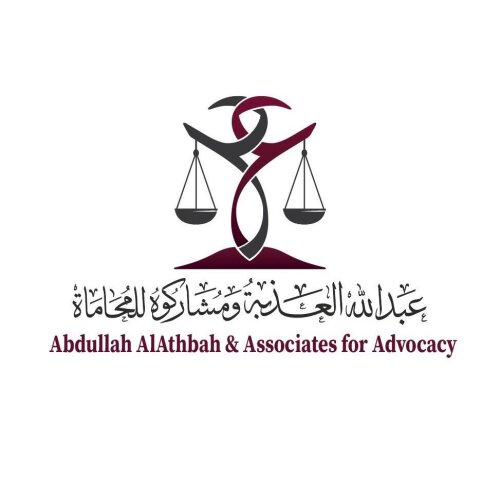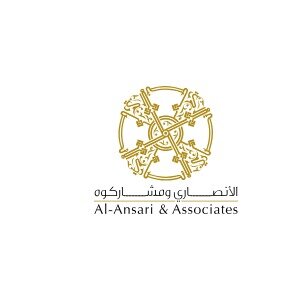Best FDA Law Lawyers in Qatar
Share your needs with us, get contacted by law firms.
Free. Takes 2 min.
Or refine your search by selecting a city:
List of the best lawyers in Qatar
About FDA Law in Qatar
FDA Law in Qatar generally refers to the regulations and legal frameworks that oversee food, drugs, medical devices, and related products. While Qatar does not have an agency that is directly called the "Food and Drug Administration" in the manner of the United States FDA, Qatar’s Ministry of Public Health (MoPH) fulfills a similar regulatory function. The law in this field governs the safety, quality, importation, manufacturing, labeling, and sale of food, pharmaceutical products, medical devices, cosmetics, and health supplements. Compliance is critical for businesses and individuals working in these sectors, as these laws are designed to protect public health and ensure all products in the market are safe and effective.
Why You May Need a Lawyer
Many individuals and organizations may require legal assistance when dealing with FDA Law in Qatar. Common situations that might require legal help include:
- Importing or registering new food products, drugs, or medical equipment in Qatar.
- Ensuring products comply with local labeling, certification, and safety standards.
- Responding to inspections or compliance checks from regulatory authorities.
- Dealing with product recalls, bans, or fines imposed by the Ministry of Public Health.
- Drafting or reviewing contracts with suppliers, distributors, or retailers involving regulated products.
- Handling disputes regarding product safety, efficacy, quality, or intellectual property rights.
- Pursuing or defending against allegations of non-compliance with local laws.
Legal experts in this field play a crucial role in navigating complex regulatory frameworks and avoiding costly errors or violations.
Local Laws Overview
Qatar’s local laws regarding food, drug, and medical product safety are primarily enforced by the Ministry of Public Health, which has divisions responsible for food safety and pharmacy and drug control. Some core aspects include:
- All food and drug products must be registered and approved before being imported or distributed in Qatar.
- Strict standards are in place for labeling, packaging, and advertising regulated products.
- Manufacturers and importers must have appropriate licenses and permits.
- Regular inspections and product testing are conducted by regulatory authorities.
- Non-compliance can result in the suspension of licenses, product recalls, destruction of goods, or financial penalties.
- Clinical trials and research involving pharmaceuticals or medical devices require special approvals.
- Counterfeit or substandard products are subject to severe penalties under Qatari law.
These laws are updated periodically to align with international standards and ensure public safety.
Frequently Asked Questions
What agency regulates food, drugs, and medical devices in Qatar?
The Ministry of Public Health (MoPH) serves as the primary regulatory body for food, drug, and medical device safety in Qatar. Specialized departments within MoPH handle the registration, inspection, and monitoring of various products.
Do I need to register my product before selling it in Qatar?
Yes, all food, drug, and medical device products must be registered and approved by the Ministry of Public Health before being imported, distributed, or sold in Qatar.
Is there a difference between FDA Law in Qatar and other countries?
Yes, while the underlying principles may be similar, Qatar’s regulatory framework is unique and tailored to its local context. Requirements for approval, labeling, and testing may differ from those in other jurisdictions.
What are the labeling requirements for food products?
Labeling must be in Arabic (with additional languages optional) and must accurately state the ingredients, expiration date, manufacturer information, and any relevant warnings as per Qatari law.
How are counterfeit or substandard products handled?
Counterfeit, substandard, or misbranded products are subject to confiscation, recall, and destruction. Responsible parties can face significant fines, imprisonment, and permanent bans from operating in the sector.
What should I do if my product is recalled?
If your product is recalled by authorities, you must comply with all recall instructions, notify consumers and distributors, and cooperate fully with MoPH. Legal assistance is recommended to ensure you meet all obligations.
Are clinical trials for new drugs allowed in Qatar?
Yes, but they require prior approval from the Ministry of Public Health and an accredited ethics committee. There are strict protocols for conducting clinical research in Qatar.
Are there restrictions on importing supplements or cosmetics?
Yes, supplements and cosmetics are also regulated and subject to registration, testing, and labeling requirements. Only approved and safe products can be imported and sold in Qatar.
What are the penalties for violating FDA-related laws in Qatar?
Penalties range from monetary fines and product seizures to imprisonment and business license revocation, depending on the severity and nature of the violation.
How can I ensure ongoing compliance with FDA Law in Qatar?
Regularly review updates from the Ministry of Public Health, maintain transparent records, conduct internal audits, and consult with legal experts who specialize in health and safety regulations to ensure full and ongoing compliance.
Additional Resources
If you need more information or assistance, the following resources can be helpful:
- Ministry of Public Health’s Department of Food Safety and Environmental Health
- Pharmacy and Drug Control Department, MoPH
- Qatar Chamber of Commerce for guidelines on importation and registration
- Qatar Industrial Development laws and bodies for manufacturing standards
- Local law firms with experience in food and drug regulation
Many of these organizations provide guidelines, forms, and updates relevant to current regulatory requirements.
Next Steps
If you believe you need legal assistance in FDA Law, start by clearly identifying your issue, whether it involves product registration, compliance, dispute resolution, or another area. Gather all relevant documents and records related to your product or business. Consult a local lawyer who specializes in regulatory and health sector law in Qatar. You can reach out directly to the Ministry of Public Health for guidance, or ask local business associations for recommendations on experienced legal professionals. Timely legal advice can help you avoid costly mistakes, stay compliant, and focus on the growth and safety of your business.
Lawzana helps you find the best lawyers and law firms in Qatar through a curated and pre-screened list of qualified legal professionals. Our platform offers rankings and detailed profiles of attorneys and law firms, allowing you to compare based on practice areas, including FDA Law, experience, and client feedback.
Each profile includes a description of the firm's areas of practice, client reviews, team members and partners, year of establishment, spoken languages, office locations, contact information, social media presence, and any published articles or resources. Most firms on our platform speak English and are experienced in both local and international legal matters.
Get a quote from top-rated law firms in Qatar — quickly, securely, and without unnecessary hassle.
Disclaimer:
The information provided on this page is for general informational purposes only and does not constitute legal advice. While we strive to ensure the accuracy and relevance of the content, legal information may change over time, and interpretations of the law can vary. You should always consult with a qualified legal professional for advice specific to your situation.
We disclaim all liability for actions taken or not taken based on the content of this page. If you believe any information is incorrect or outdated, please contact us, and we will review and update it where appropriate.
Browse fda law law firms by city in Qatar
Refine your search by selecting a city.

















